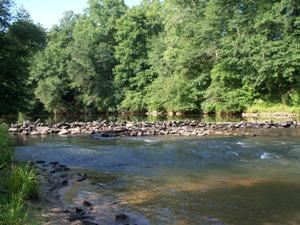
Section Branding
Header Content
Bacteria Monitored in Rivers
Primary Content

The warmer weather brings more people out on Georgia’s water ways, but many bacteria thrive in the higher temperatures.
Coosa Riverkeeper Joe Cook, who keeps tabs on the Etowah River, says in general the state’s waterways are healthy. That's because of the Clean Water Act passed decades ago.
It requires sewage water be treated before being dumped back into rivers. But still, Georgia's growing population has lead to more development, which means more runoff and that he says can make water unsafe.
“Now when you have a rain event that’s when the bacteria spikes in the rivers,” says Cook, “because everything washes off the surface of the land---all that cow manure, the dog poop, whatever is in the parking lot of the shopping center.”
Cook says when the bacteria is high, it’s likely other pathogens which cause sinus or gastro-intestinal infections are also in the water.
The state tests about 20 percent of its waterways says Elizabeth Booth with the Georgia Environmental Protection Division.
“A quarter of the waters are not meeting their fecal coliform standards. Fecal coliform is a collection of bacteria that are found in fecal matter,” says Booth.
Several riverkeepers in the state monitor bacteria levels during the warmer season and post them on their website for the public safety.
Chattahoochee Riverkeeper Sally Bethea says they've been testing weekly with the US Geological Society and National Park Service for over a decade now.
"High levels of bacteria come from run-off from heavy rains, from cracked sewer lines, septic systems and those sorts of inputs," says Bethea, "but the good news is when we haven't had a heavy rainstorm, the river is very clean for recreational use."
Tags: Etowah River, riverkeepers, bacteria, Coosa Riverkeeper Joe Cook
